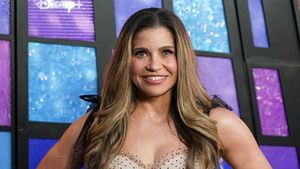Manchester United is undergoing significant cost-cutting measures under the leadership of Sir Jim Ratcliffe, who assumed control of the club earlier this year. Central to these measures is the closure of the staff canteen at Old Trafford and the transition from free meals to basic food options.
According to reports from The Guardian, Ratcliffe has decided to end complimentary meals for staff, replacing them with fruit offerings at the stadium and limiting other staff members at the Carrington training facility to just soup and bread. This decision signifies a stark shift from the previous norm where employees enjoyed access to free hot meals, tea, and coffee.
Ratcliffe’s austerity measures are part of his broader strategy to re-establish Manchester United's competitiveness after the club reportedly suffered losses exceeding £300 million over the last three years. His regime has already seen over 250 employees laid off, and reports suggest the possibility of hundreds more job cuts. "It's about making United efficient again," Ratcliffe stated during discussions with staff, highlighting the need for structural change.
These measures extend beyond food. Ratcliffe has implemented various changes including canceling the traditional Christmas party, raising ticket prices, and withdrawing funding from charities supporting former players. This approach has raised concerns among current employees about morale and the club's overall direction.
Ratcliffe's decision to close the canteen and end free meals, replacing them with cheaper alternatives, has drawn criticism from staff. They argue it undermines their value and contribution to the club. Currently, the canteen operates from 11:30 AM to 1:30 PM, and employees were allowed access based on passes providing free meals. Now, only players are guaranteed complementary meals.
Under the new regime, casual matchday staff will still receive packed lunches, albeit without the full spectrum of former offerings. These food reductions not only reflect economic necessity but also raise questions about the club's commitment to its workforce.
The impact of Ratcliffe's management style is being felt across various levels of the organization, significantly affecting employee sentiment. The concentration on cost-cutting, without addressing employee welfare, may lead to greater dissatisfaction as the changes settle.
Ratcliffe's ownership is part of strategic efforts to restore Manchester United to its former glory, on and off the pitch. Throughout this transitory phase, the team has continued to underperform as evidenced by their current position in the Premier League standings, sitting at 15th. Comments from head coach Ruben Amorim indicate the depth of the difficulties faced, as he remarked on managing what some fans are calling the "worst Manchester United team" historically.
To compound the issues, the club has also begun entering negotiations for player sales, including prominent names like Casemiro and Antony, to reinforce the squad where possible. This approach emphasizes Ratcliffe's strategy of revitalizing Manchester United through both financial prudence and by actively reshaping the team's composition.
Similar cost-cutting measures have impacted the club's youth teams, with recent reports stating the under-18 squad was denied the chance to play at Old Trafford for their FA Youth Cup match. Instead, they were shifted to the Leigh Sports Village, saving the club roughly £8,000. Such adjustments, though financially motivated, signal tough circumstances for aspiring young players.
Despite these challenges, Ratcliffe has committed funds to modernize areas of the club's operational framework, aiming for improvements at Carrington, the training base. Investments amounting to about £50 million are expected for upgrades, which suggest long-term growth prospects, albeit with immediate sacrifices.
Management is expected to address staff concerns at all-employees meetings to outline paths moving forward, indicating Ratcliffe’s aim for transparency during this period of transformation. After suffering substantial losses, he faces scrutiny from supporters and stakeholders, pushing for the reestablishment of Manchester United's legacy.
With heavy dependence on projected player sales and minimized operational expenses, Ratcliffe's approach will continue to be closely monitored. Fans and employees alike await to see how these cost-cutting strategies impact the team’s performance and their communal spirit.
Overall, these changes represent just one chapter of Manchester United’s larger narrative as it strives to align itself for future successes amid significant financial hurdles and operational restructuring.



